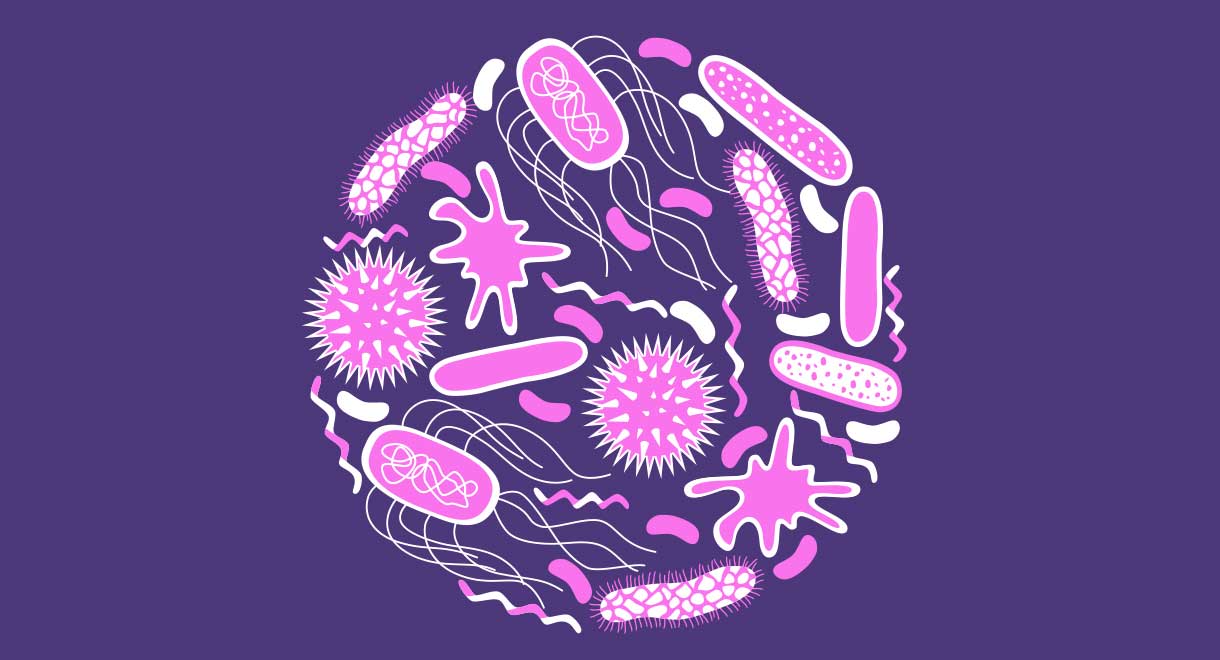Functions of beneficial gut bugs
By naturopath Margaret Jasinska
In recent years we are hearing more and more about the role of beneficial gut bacteria in overall health. Hippocrates was once quoted as saying “all disease begins in the gut.” Time is proving Hippocrates to be right. Science is catching up and now linking poor gut health with a myriad of health problems.
The microbes in your intestines weigh approximately one and a half kilos; so there are a lot of them! They are there for very important reasons. You would not survive without them. The number of biochemical reactions they perform rival those of your liver. Clearly, you want your gut bugs to be as healthy as possible.
So far, researchers have determined that your gut microbiome performs the following functions:
- Regulation of immune system function. Your gut bugs help to protect you from infections by inhibiting the binding of pathogenic bacteria to your intestinal cells. They regulate IgA production in the gut and help to prevent allergic reactions. They also help to maintain immune tolerance by improving the health of T-regulatory white blood cells. This means your gut bugs are supposed to help you recognise your own cells and organs, and make sure you don’t attack them. This function goes horribly wrong in people with autoimmune disease. A healthy gut microbiome helps to balance the different arms of the immune system. Specifically it helps to balance Th1, Th2 and Th3 immune cells. An imbalance between these different cell types is a feature of all autoimmune diseases. Saccharomyces boulardii is a probiotic yeast. It is a good yeast that helps encourage IgA production. It is found in Gut Health powder.
- Maintenance of normal gut motility. Healthy gut bugs help to normalise bowel function, so that you don’t suffer from constipation or diarrhoea. They also help to maintain more subtle gut movements called cleansing waves, which help to prevent a build up of bacteria in the small intestine, which could lead to SIBO (Small Intestinal Bacterial Overgrowth).
- Production of short chain fatty acids, including butyric acid, propionic acid and acetic acid. These fatty acids provide nourishment for the cells lining your intestines and they help to reduce the risk of bowel cancer. These short chain fatty acids also help your body to absorb minerals, including zinc, iron, magnesium, copper and calcium.
- Maintenance of a healthy mood. Alterations in the gut flora can increase the risk of depression and anxiety. Research in this area is increasing at a rapid rate.
- Weight maintenance. There is a strong relationship between the types of bugs in your gut and your body weight. Having too many harmful microbes leads to the increased production of inflammatory chemicals. These inflammatory chemicals can create insulin resistance (syndrome X) and also place enormous stress on the liver, impairing its fat burning and detoxification abilities, increasing the risk of fatty liver.
- Assistance with digestion. Your gut bugs contain enzymes that help you digest your food more thoroughly. They particularly help with the digestion of starch and fibre; helping you to extract more nutrients from plant foods. Gut microflora help to break down phytic acid in foods like nuts and seeds, improving the digestibility of minerals in these foods.
- Synthesis of vitamins, particularly B vitamins and vitamin K2.
- Enhancement of the absorption of fatty acids and fat soluble nutrients such as vitamins A, D, K and E. Deficiencies of these nutrients is very common in people with autoimmune disease.
- Protection from infection by directing the production of antibodies against invading pathogens.
In short, your microbiome plays a critical role in the maintenance of a healthy immune system. It helps to prevent excessively high levels of inflammation in your body. Excessive inflammation is a feature of most diseases, especially those involving pain, fatigue, autoimmune disease and allergies. Achieving a healthy microbiome involves having a healthy population of gut microbes living in the correct numbers, in the correct location and in appropriate diversity.
For information on keeping your microbiome healthy, see our book, Healing Autoimmune Disease: A plan to help your immune system and reduce inflammation.
References:
Fujimara KE, Slusher NA, Cabana MD, et al. Role of gut microbiota in defining human health. Expert Rev Anti Infect There 2010;8(4):435-454
Maynard CL, Elson CO, Hatton RD, et al. Reciprocal interactions of the intestinal microbiota and immune system. Nature 2012;489:231-241.
Arrieta MC, Stiemsma LT, Amenyogbe N, et al. The intestinal microbiome in early life: health and disease. Front Immunol 2014;5;5:427.









A very well written article